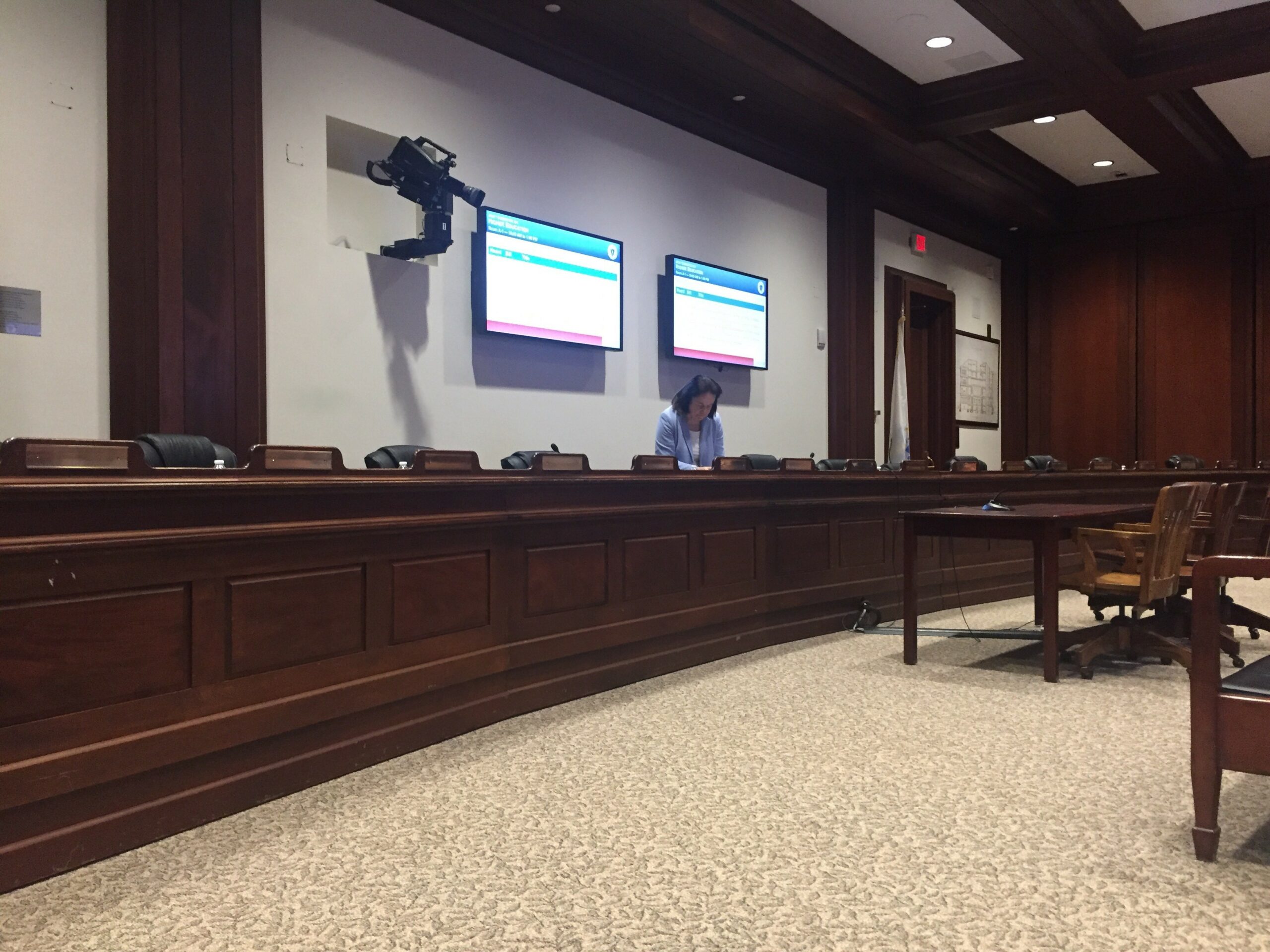The Boulder Fund grant will allow Mass Insight to pilot a new program targeting middle school readiness. May. 22, 2025 –Boston– Mass Insight Education & Research’s President and CEO, Andrea Wolfe, has been selected in the 2025 cohort of Education Leaders of...
MIE Testimony Relevant to Act S.703 and H.2994 on Advanced Placement Examinations
- 703/H. 2994
An Act Relative to Advanced Placement Examinations
Testimony to the Joint Committee on Higher Education
Dr. Susan F. Lusi, President and CEO, MIE
June 29, 2017
Chairman Moore, Chairman Scibak, and members of the Joint Committee on Higher Education. For the record, my name is Susan Lusi, and I’m the president and CEO of MIE. I’m here to testify in favor of S. 703/H. 2994.
This bill will reward hard working students across Massachusetts for their achievement in rigorous College Board Advanced Placement (AP) examinations. It addresses an inconsistency in the way our public colleges award credit for success on the AP exam. It ensures that AP credit policy is transparent and accessible to students and families as they consider where to attend college. It honors the dedication and outstanding work of our high school AP faculty, whose collective efforts have made Massachusetts number one in the nation in the percentage of students with a qualifying score of three or better in 2016. Passage of this bill would make Massachusetts the first state in New England with a system-wide AP credit policy, joining 23 other states in establishing a policy that rewards students for their hard work and success on AP exams.
MIE became concerned about this issue last summer as we were preparing for kickoff events that we co-sponsor with our partner high schools to start the school year. As some of you know, MIE works with over 60 high schools and 10,000 students to accomplish three goals: 1) increase enrollment in challenging AP STEM and English classes; 2) increase the enrollment of underserved students in AP classes; and, importantly for this bill, 3) increase the number of qualifying scores of three or better on AP exams. During the kickoff events—which are enthusiastic pep rallies for academic success—we share with students the advantages of doing well on the AP exam by achieving a qualifying score of three, four, or five on the AP exam.
Achieving a qualifying score should provide students with a head start on college by rewarding them with college credit for AP excellence and saving them tuition dollars for work well done in high school. Research shows that earning an AP exam score of three or higher results in college success. But our public higher education system is inconsistent in how AP credits are rewarded across the campuses. Policies differ from campus to campus both within and across each sector of the system. A score of three may be acceptable at one institution but not at another, even for the same course. Consider for example Physics 1 and 2. According to data provided by the College Board, an AP score of three will result in college credit at U Mass Amherst, U Mass Dartmouth, and U Mass Lowell, but not at the Mass College of Art, Westfield State, or Worcester State where a score of four is required. Yet another example—a score of three will result in college credit in Chemistry at all the state universities except for Westfield State, and at U Mass Boston and Dartmouth, but not at Amherst or Lowell. This simply makes no sense and sends a discouraging message to students who are denied college credit for work well done. There are other examples as well and my colleague from the College Board will provide you with their latest data on Massachusetts AP credit policies.
Both S. 703 and H. 2994 propose a commonsense approach to a consistent AP credit policy. The bills require that a qualifying score of three or higher be accepted for credit to satisfy degree requirements. The department of higher education would determine if the credit be granted for electives, general education, or major requirements. Credits would be transferable and no cap would be placed on the number of credits earned by students who earn a three or better on AP exams. In fact, many students we work with take multiple AP exams, attending study sessions on Saturday mornings to receive additional instruction and support, all focused on getting an early start on college.
These bills also address a shortcoming that we found in our research on AP credit policies. Generally, there is a lack of information, or the information is hard for students to find, about AP credit policy on college and university websites. The proposed legislation requires each public institution to clearly publish this policy on their website, an important step for helping students and families make informed and thoughtful college choices.
Massachusetts is taking a number of steps to provide students with seamless transitions into and through college through initiatives such as early college and Mass Transfer. Establishing a consistent and transparent AP college credit policy as presented in these bills will be another important step in this direction by rewarding students for excellence in high school and giving them an on-ramp to college. I urge the committee to give a favorable report to S. 703 and H. 2994.

Recent Posts
Cybersecurity Event Introduces Students to Cyber Careers
For the 5th year in a row, Mass Insight Education & Research is hosting the Cybersecurity and You Workshop to introduce Advanced Placement® (AP) STEM high school students to cybersecurity scenarios and concepts as well as postsecondary education and career paths....
Adolescent Literacy Crisis: IES Guide In Action – Webinar
What does the evidence say about how schools can improve the adolescent literacy crisis happening in our country? In this webinar, we explore the Institute of Education Sciences Reading Intervention Guide for Grades 4 through 9, found here, and diving into two of the...
You may also like
President and CEO of Mass Insight Named 2025 Boulder Fund Recipient by Education Leaders of Color
The Boulder Fund grant will allow Mass Insight to pilot a new program targeting middle school readiness. May. 22, 2025 –Boston– Mass Insight Education & Research’s President and CEO, Andrea Wolfe, has been selected in the 2025 cohort of Education Leaders of...
Cybersecurity Event Introduces Students to Cyber Careers
For the 5th year in a row, Mass Insight Education & Research is hosting the Cybersecurity and You Workshop to introduce Advanced Placement® (AP) STEM high school students to cybersecurity scenarios and concepts as well as postsecondary education and career paths....
All Over The Map – Webinar
When it comes to the courses high schoolers across the Commonwealth are required to complete for their diplomas, Massachusetts sets few requirements and collects no school level data. Instead, each high school makes their own determination about the courses required...


